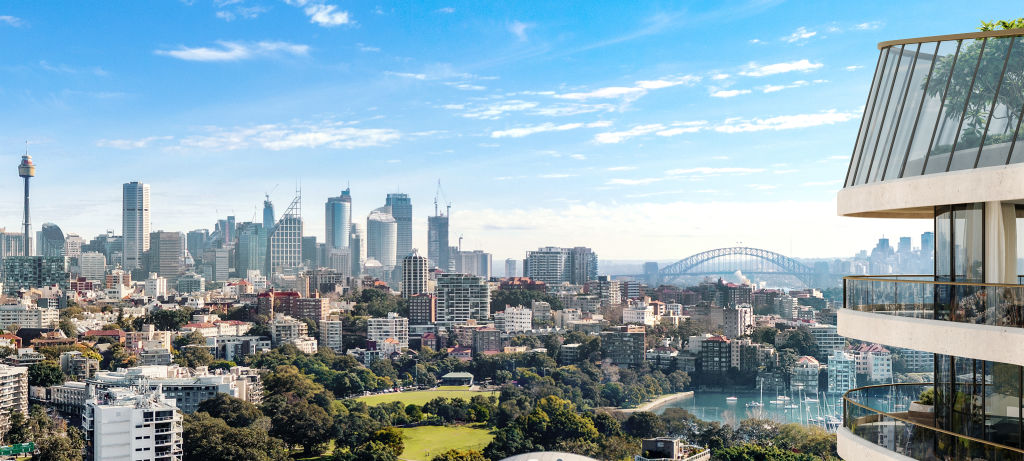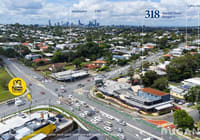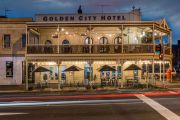
Sydney’s Bathla juggles dozens of property projects and a $2.7b debt
A major real estate developer in Sydney’s western suburbs owes more than $2.7 billion but has just $6.5 million in the bank, new disclosures show.
Bathla Group, once known as Universal Property, mostly builds large housing estates and townhouses, and targets its marketing at new migrants. The company is building hundreds of units in Cabramatta, for instance, in a project that is expected to cost hundreds of millions of dollars.

But the Bathla’s true financial position is revealed in accounts filed with the Australian Securities and Investments Commission last Friday after The Australian Financial Review raised questions about their late disclosure.
The accounts show a cash balance of $6.5 million on June 30, with borrowings of $2.7 billion. Bathla Group has net assets of $430 million.
Among the company’s assets are $209 million of units completed and up for sale, $191 million deposits and $1.5 billion of work that is “in progress”. There is also a land bank that Bathla Group has valued at $1.3 billion.
The accounts show revenues of $1.3 billion in the last financial year, and a net profit of $80.4 million, up from $62.9 million for the prior period.
Bhart Bhushan, a former taxi driver who founded Bathla Group in 1997, shares in $2.1 million in dividends with his co-owner, Rajinder Mohan.
But the company paid nearly $200 million in interest and other financing costs over the 12 months, the accounts show. Separate disclosures show hundreds of securities recorded against its main holding entity, including over vehicles and equipment leases, by major private credit firms including Alceon, CVS Lane, MaxCap and La Trobe Financial.
Alceon, a large alternative asset manager and a lender to real estate developers, is the company’s biggest financier. Multiple people familiar with discussions, who requested anonymity to speak freely, said the firm had attempted to refinance some of its exposure to Bathla Group recently.
That exposure, the people said, was over $600 million.
“Our funding for all development partners comprises a mix of loans at different stages in the process including land loans, construction loans and residual stock loans provided by a mix of institutional and non-institutional investor pools,” said Alceon’s chief executive David Gribble.
“We are very happy with our exposure [at Bathla],” he said, adding the firm had lent against “multiple high quality residential real estate land, house and low rise apartment projects, located in the key growth corridors”.
A number of larger private credit firms have declined to take on the company’s debt, fearing its heavy debt load and scared off by its complex existing lending relationships. Property developers have come under unprecedented pressure due to sustained high interest rates and rising construction costs, with several collapsing into administration.
Last month, for instance, The Australian Financial Review reported that the family of a billionaire Chinese businessman was pushing for JDH Capital, the developer behind the infamous Sirius building, to be wound up. The failure of developers has affected private credit providers, some of which have had to convert their loans into equity stakes in projects.
Alvarez & Marsal estimated earlier this year that there was now $205 billion in private credit lending, making up 17 per cent of all real estate lending.
“[Bathla] finances projects as a part of its normal course of business. [Universal Property] remains compliant with its various facilities and lenders and is routinely financing new and existing projects as they move through development,” a lawyer for Bathla Group said. “[Universal Property] remains compliant with all of the facilities it has with its lenders.”
Lenders to the company have been pushing for Bathla to increase the quality of its developments and reduce its project timelines.
Labor MP Stephen Bali, the NSW parliamentary secretary for planning, has previously described Bathla Group’s Schofields site as “a Soviet-style development” and “the worst developed property in NSW”.
Asked about the complaints about the company’s build quality, the lawyer said: “UPG stands behind its products and works closely with all customers to address any matters raised in a reasonable and timely manner.”











